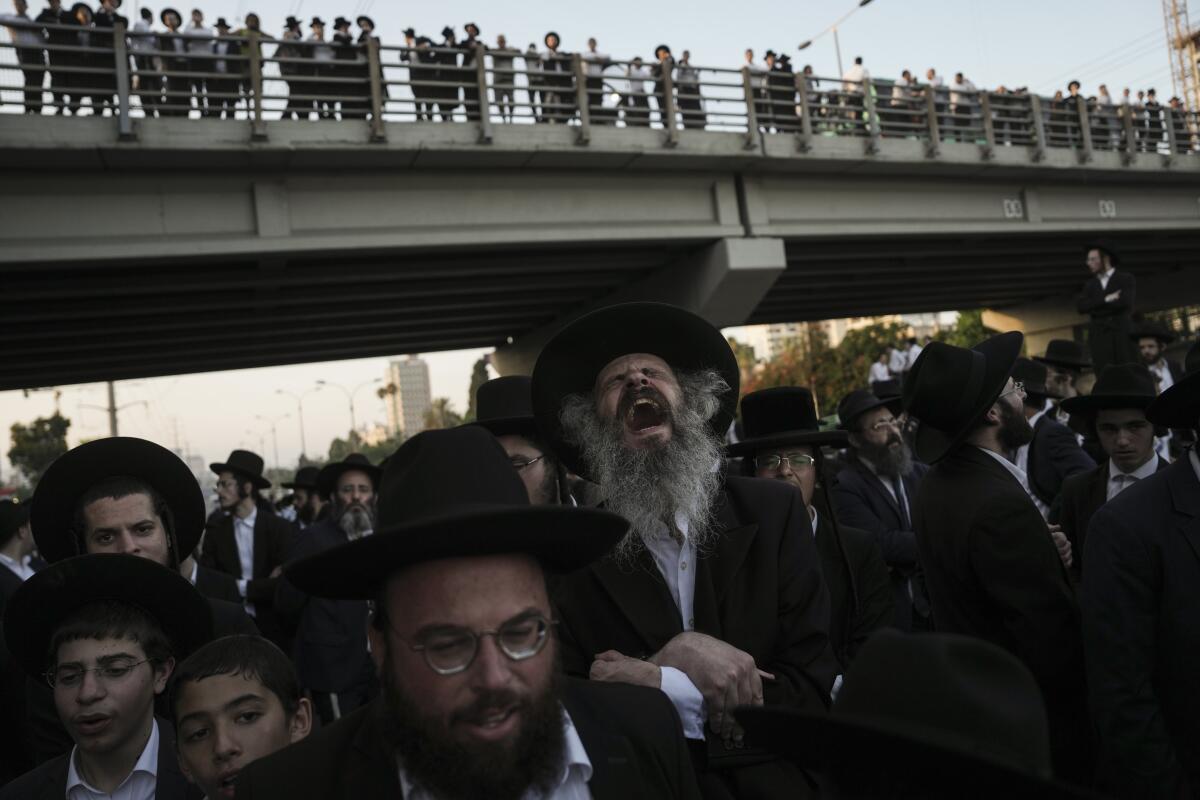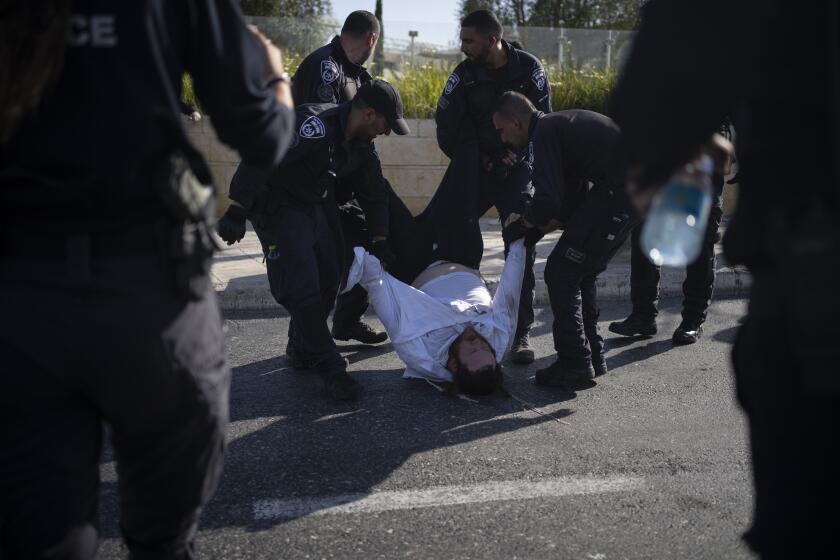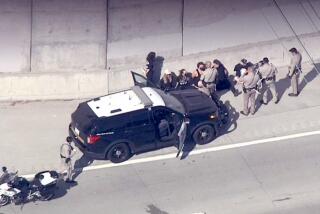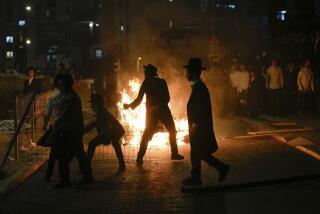Ultra-Orthodox Jews block highway to protest Israel’s new mandatory military service ruling

BNEI BRAK, Israel — Hundreds of ultra-Orthodox Jewish men blocked a major highway in central Israel for two hours on Thursday to protest a recent Supreme Court decision ordering young religious men to enlist for military service.
Military service is compulsory for most Jewish men and women in Israel. But politically powerful ultra-Orthodox parties have won draft exemptions for their followers that allow them instead to study in religious seminaries.
This long-standing arrangement has bred widespread resentment among the broader public — a sentiment that has grown stronger during the eight-month war against Hamas in Gaza. More than 600 soldiers have been killed, and tens of thousands of reservists have been activated, straining careers, businesses and family lives.
The historic ruling effectively puts an end to a decades-old system that granted ultra-Orthodox men broad exemptions from military service.
Protesters sat on the highway and lay on the ground as police lifted them up and dragged them away. Officers mounted on horseback charged into the crowd. Many demonstrators held signs and chanted “To prison! Not to the army!”
“We all came here for one goal, we reflect the position of all the Orthodox public,” said a young man, identifying himself only by his first name Ozer. “All the Orthodox public prefers to go to prison and not to the army.”
The ultra-Orthodox see their full-time religious study as their part in protecting the state. Many fear that greater contact with secular society through the military will distance adherents from strict observance of the faith.
Some ultra-Orthodox Jews are seeking secular Israeli jobs and lifestyles, but they face growing resentment over religious school subsidies and other benefits.
The Supreme Court this week ordered the government to begin drafting ultra-Orthodox men, saying the system of exemptions is unequal.
The decision could lead to the collapse of Prime Minister Benjamin Netanyahu’s government. Ultra-Orthodox parties and their followers oppose any change in the system.
The ultra-Orthodox make up roughly 13% of Israel’s population. But under the country’s fragmented political system, they wield significant political power and often serve as political kingmakers.
The parties are key members of Netanyahu’s governing coalition and could potentially force new elections if they decide to leave the government.
Ultra-Orthodox leaders have not yet said whether they will quit the government, but their followers have scheduled a large protest in Jerusalem on Sunday.
Bentov writes for the Associated Press.
More to Read
Sign up for Essential California
The most important California stories and recommendations in your inbox every morning.
You may occasionally receive promotional content from the Los Angeles Times.











